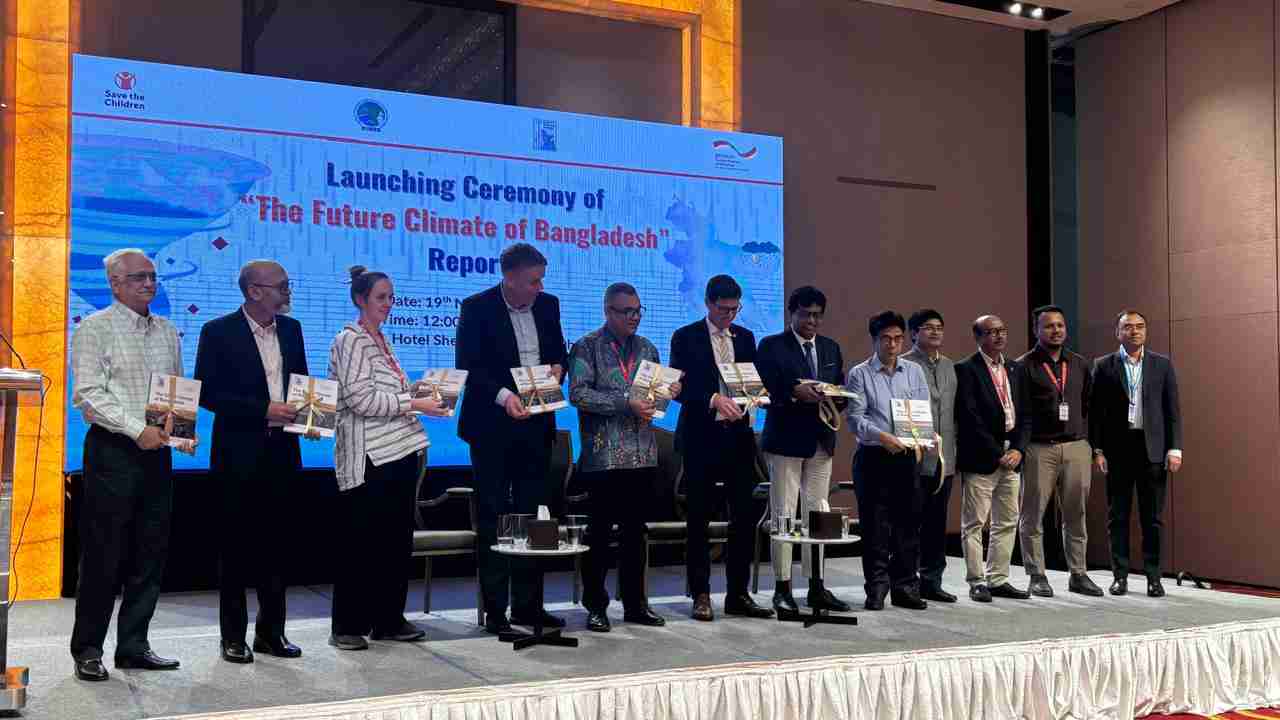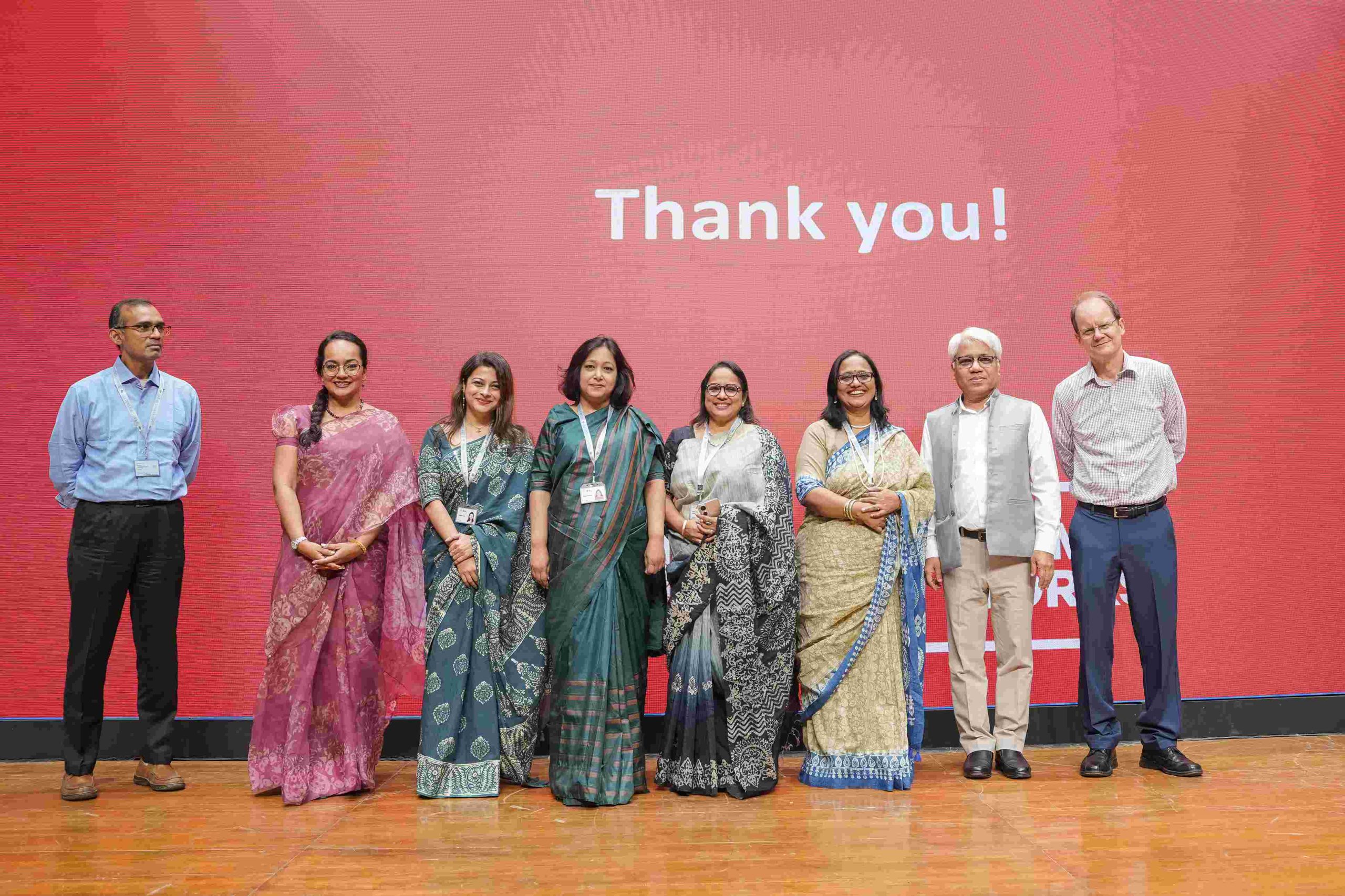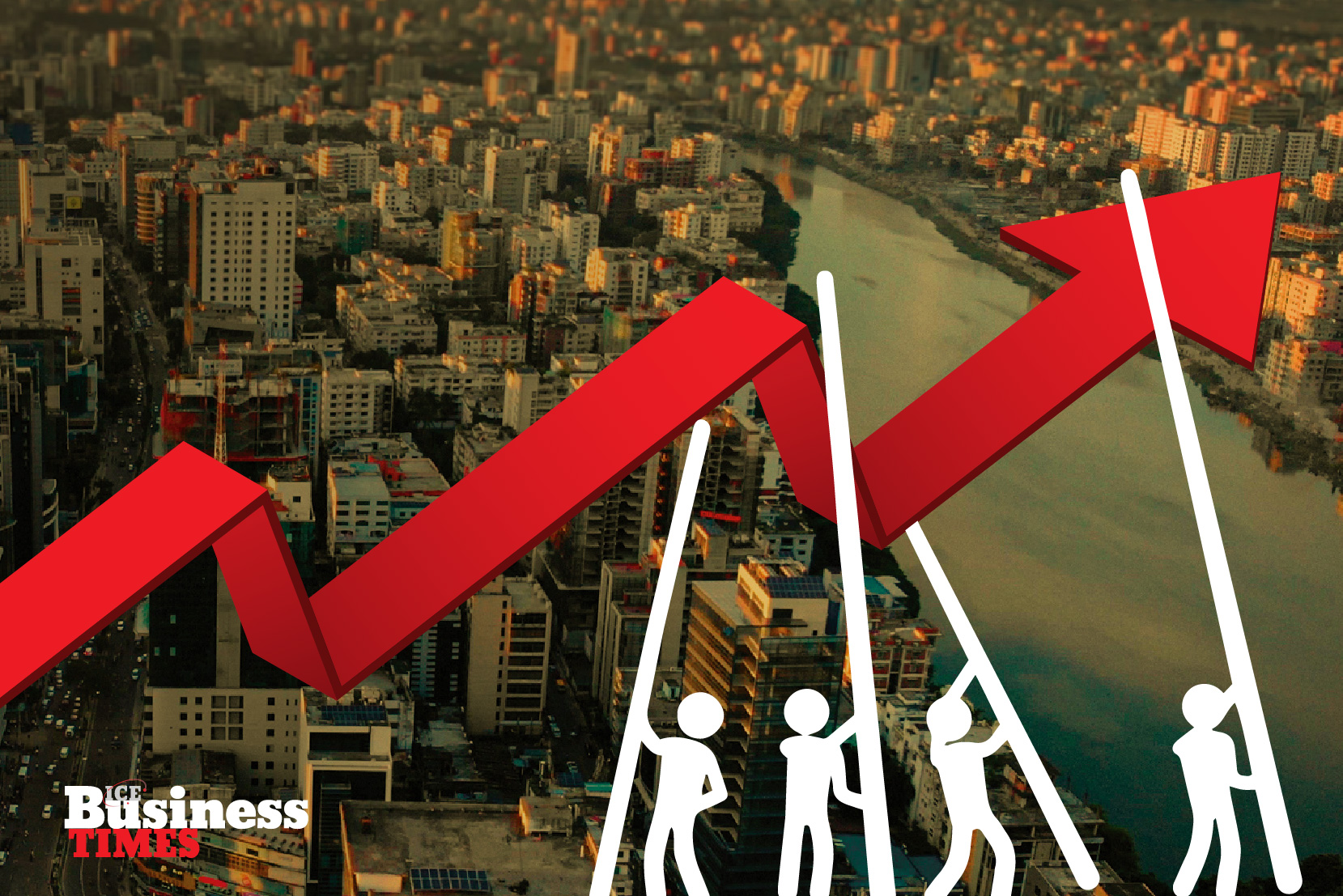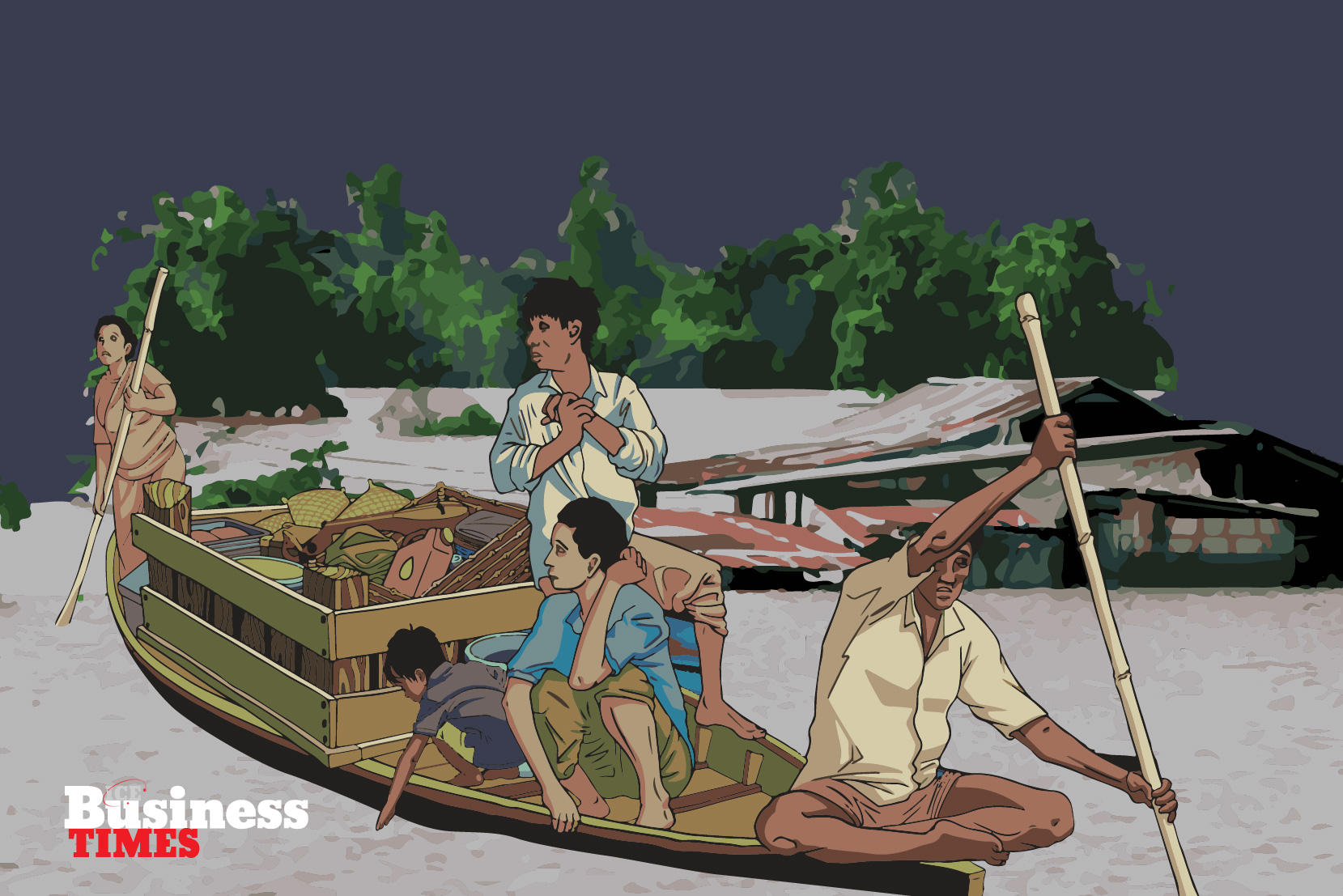Dhaka, 19 November 2025: The Bangladesh Meteorological Department (BMD), in collaboration with Save the Children and the Norwegian Meteorological Institute, unveiled the landmark scientific report “The Future Climate of Bangladesh” today at the Hotel Sheraton Dhaka. The report presents the most comprehensive long-term climate projections for Bangladesh to date, warning that the country could experience up to 4.5°C temperature rise by the end of the century, alongside intensifying heatwaves, rising sea levels, heavier rainfall, and growing climate-driven health risks.
Senior government officials, climate scientists, development partners, and media joined the launch event, which featured a keynote presentation by the Norwegian Meteorological Institute, and a detailed technical session led by BMD.
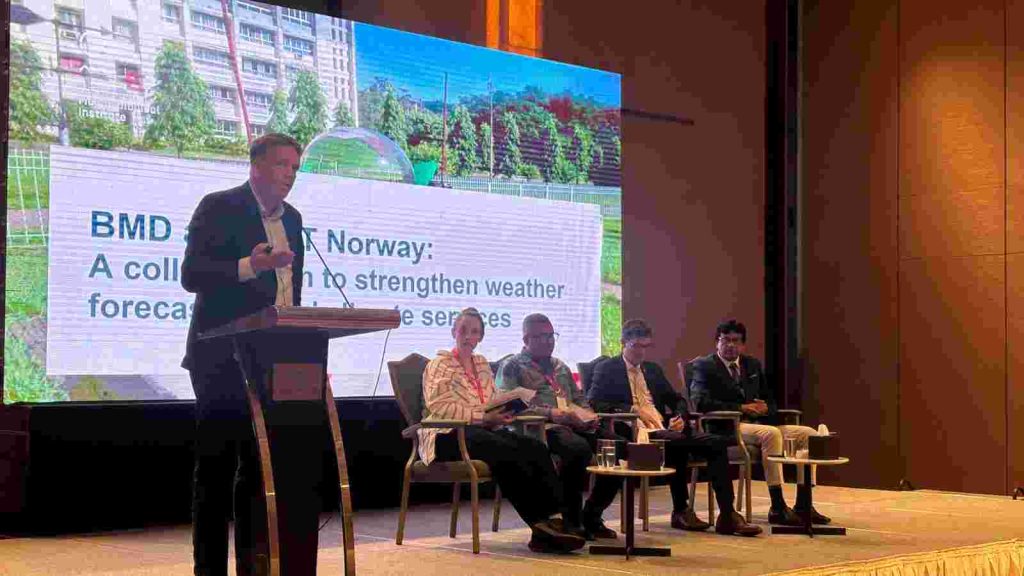
Key findings from the report include:
- By end-century (2071–2100) Bangladesh may see 1.5°C to 4.5°C rise in daily mean
temperature - Extreme Heatwaves Becoming More Severe and Widespread and could last 15–25 days per
season - Up to 18% of Bangladesh’s Coastal Land May Become Submerged by 210
- Monsoon Rainfall to Increase by 15% by 2100, Raising Flood and Landslide Risk
- Extreme Heat Could Increase Child Stunting Risk by 56%
Quotes:
Håkon Arald Gulbrandsen, Ambassador, Norwegian Embassy, Chief Guest:
“The climate projections for Bangladesh are clear. Temperatures may rise up to 4.5 degrees, sea levels will threaten coastal communities, and more intense heatwaves will impact health, agriculture, and access to safe water. These are strong warnings.
For Norway, supporting Bangladesh, BMD, and national partners in strengthening climate resilience is a priority. Bangladesh is a resilient nation, and this report reminds us that sustained commitment to climate action is essential. With elections ahead, I hope all political parties will consider these findings in their future vision for the country.”
Md. Momenul Islam, Director, Bangladesh Meteorological Department, Chair of the event:
“The trend of climate change is accelerating, and the warming of our planet is now unmistakable. According to the World Meteorological Organization, 2024 is on track to be the warmest year on record, and October 2025 has already marked one of the warmest Octobers in global history. If global greenhouse gas emissions continue at the current pace, Bangladesh may experience a rise in mean temperature of 1–2°C by mid-century and 1.5–4.5°C by the end of the century. Rainfall patterns will shift, and monsoon rainfall may increase by up to 15%, particularly in the northern regions.
Bangladesh has already taken important steps to confront these challenges through initiatives like the National Adaptation Plan (NAP), focusing on climate-resilient agriculture, food and nutrition security, sustainable cities, and nature-based solutions. These efforts remind us that scientific climate projections are essential for shaping smart, future-focused policies.”
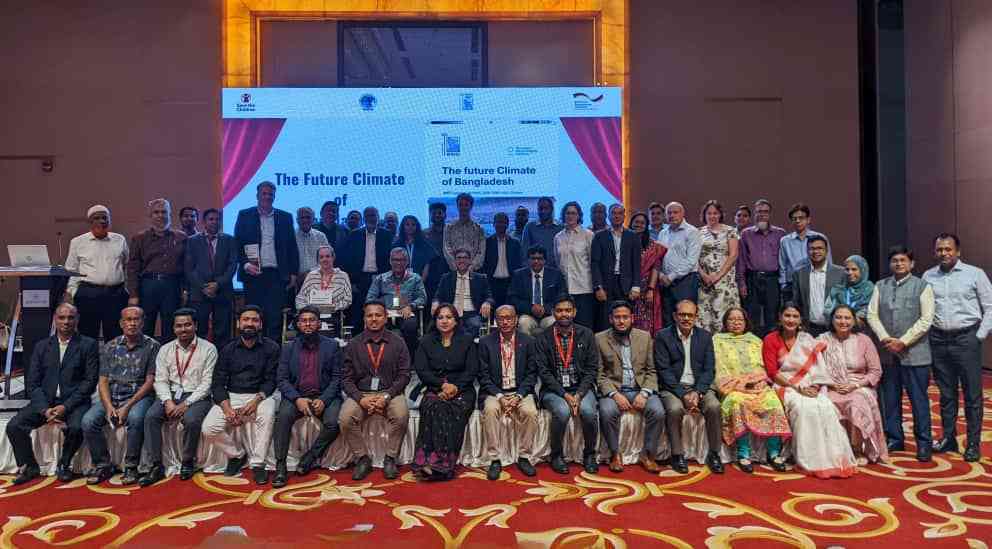
Save the Children emphasized that climate projections must guide anticipatory action, community preparedness, and child-centered climate resilience. Integrating scientific evidence into development planning is essential to protect vulnerable populations from intensifying climate hazards.
About the Report
“The Future Climate of Bangladesh” is developed by BMD in collaboration with the Norwegian Meteorological Institute, with support from Save the Children. The report provides essential scientific projections to inform national planning, adaptation strategies, and disaster risk reduction efforts.









